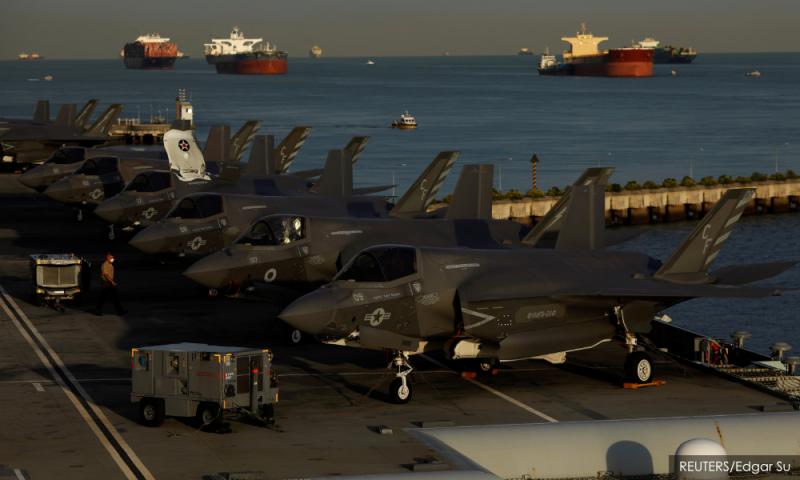LETTER | Military bases in Southeast Asia: What is Malaysia’s stance?
LETTER | Several weeks ago, I came across a news report that the Australian military intelligence has already set up a military forward base inside of the Zamboanga Philippine Military Camp with assistance from Manila.
The report has immediately raised concerns among the Filipinos protesting against the presence of foreign troops in the Bangsamoro Autonomous Region in the Muslim Mindanao with the rationale that such a move is against the constitution of Philippines and the interests of its people.
In fact, many are also sceptical about the purpose of Australian troops in the area.
Since then, questions were asked pertaining to Malaysia’s position on the issue.
Two fundamental questions that the Malaysian side needs to address would be: How does Malaysia assess the establishment of foreign military bases in other Southeast Asian states? Will the government welcome the presence of foreign troops on its own soil and territory?
The answers to both of these questions would clearly be a “no” due to three major reasons: the importance of China as a major trading partner; the limitation on Malaysia’s own military capabilities; as well as the emphasis on the principle of “neutrality” in its foreign policy.
It is also worth highlighting here that Malaysia’s foreign military cooperation activities are agreed upon on a case-by-case basis, with the exception of those under the ambit of the Five Power Defence Arrangement (FPDA).
This would also mean that permission is needed for every deployment of foreign troops in the country.
There are also suggestions that the government should offer foreign countries a base in Malaysia (particularly in Borneo) in its attempt to counter China which has become more and more assertive in recent years, especially in the South China Sea.
However, Malaysia's stance on this dispute has not changed from the beginning.
At present, the current government still adopts a “low-profile approach” by de-emphasising the problem and suppressing nationalist sentiment over the issue although it does selectively display increased willingness in taking a harder stand when it comes to preserving the sovereignty and sovereign rights in the disputed waters.
This is because Malaysia needs to avoid antagonising China in advancing the country’s economic interests and prevent the maritime disputes from overshadowing the relations.
Armed forces under-funded
China has been Malaysia’s largest trading partner for 12 consecutive years and is expected to be the largest foreign direct investment source in the manufacturing sector for five consecutive years.
Despite the downward pressure from the global economy and multiple challenges posed by the pandemic, China-Malaysia bilateral trade has increased by about 3.5 percent from January to October 2020.
In fact, the two countries also have been working closely on pandemic prevention and control, vaccine development and post Covid-19 cooperation.
The eschewed military response to Chinese incursion is not only to preserve friendly relations with Beijing but also due to the limitation of our own armed forces.
At present, the Malaysian Armed Forces are under-funded and under-equipped.
Available resources have to be stretched thin in dealing with other various security threats including piracy and this has been clearly reflected in Malaysia’s first-ever Defence White Paper published in 2019.
Hence, the decision to allow the set up of foreign military bases for the purpose of monitoring China will only provoke China to step up its activities in the region and the South China Sea.
This will not only further place pressure on the already severely stretched capabilities of the Royal Malaysian Navy and Royal Malaysian Air Force, but also have serious implications on the peace and stability in the region which is crucial for Malaysia’s own economic and social development.
In addition, this is also against the principle of neutrality long embraced by Malaysia in its foreign policy conduct.
It is important for the country to maintain its neutral rhetoric to avoid being entrapped in the intensified US-China rivalry so that it can guarantee its foreign policy options in case US-China hostilities break out.
Based on the discussion above, one can sum up that agreeing to the establishment of foreign military bases in other Southeast Asian countries or Malaysia, in particular, will only bring more harm rather than benefits to the region.
Southeast Asian countries should not end up doing things that serve the interests and agendas of other powers.
Priority should be set on ensuring our own national interests amid rising US-China contention in the region.
The views expressed here are those of the author/contributor and do not necessarily represent the views of Malaysiakini.
RM12.50 / month
- Unlimited access to award-winning journalism
- Comment and share your opinions on all our articles
- Gift interesting stories to your friends
- Tax deductable
